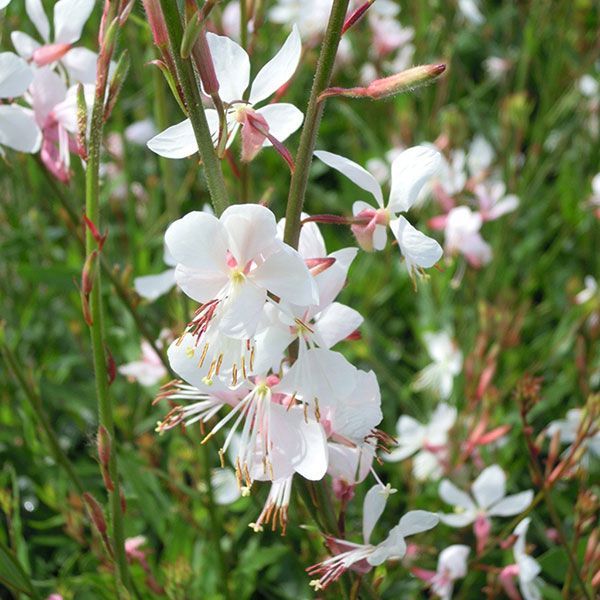Gypsophila
KEY INFORMATION
Height: to 120cm
Spread: to 45cm
Perennial or annual depending on variety
Full sun
Germination: 10 - 21 days
VARIETIES AVAILABLE FROM COLLIE FLOWERS
Covent Garden
SOWING & GROWING SCHEDULE
Sow Indoors: March - April, September - October
Sow Outdoors: May
Plant Out: April - June
Blooms: June - July

Gypsophila is very popular border plant for its clouds of flowers which are useful for flower arrangement, everlasting flowers or just for providing a pretty, misty background for other flowers.
Gypsophila paniculata is a perennial species requiring a permanent position in the garden, Gypsophila elegans is an annual species. This guide applies to both types of gypsophila.
Sow Gypsophila on the surface of the compost in spring or autumn good quality seed compost. Make sure that the compost is moist but not wet and seal in a polythene bag until after germination. Do not exclude light which is beneficial to germination.
Transplant when large enough to handle into 7.5cm pots and grow on in cooler conditions. Later plant out in a sheltered spot and grow on until autumn when they should be planted out 60cm apart in well drained soil in a sunny spot.
Gypsophila seeds can also be sown in the less formal ‘scatter’ method. Simply roughen the soil, scatter seeds evenly over the surface, then lightly cover the seeds.
Deadhead gypsophila flowers regularly during the growing season. Using sharp secateurs or snips cut fading or dead flowers off just above a set of leaves. Removing old flowers regularly will encourage plants to produce more flowers. If growing gypsophila for cut flowers, use sharp snips or secateurs to cut the longest stems possible, removing the lower leaves and placing the stems immediately in a clean bucket of water.
TOP TIP
Perennial varieties (including Covent Garden) only - When plants have finished flowering prune them back to neaten them and encourage strong new growth. Using sharp secateurs or snips, cut individual stems just above a set of lower leaves.
